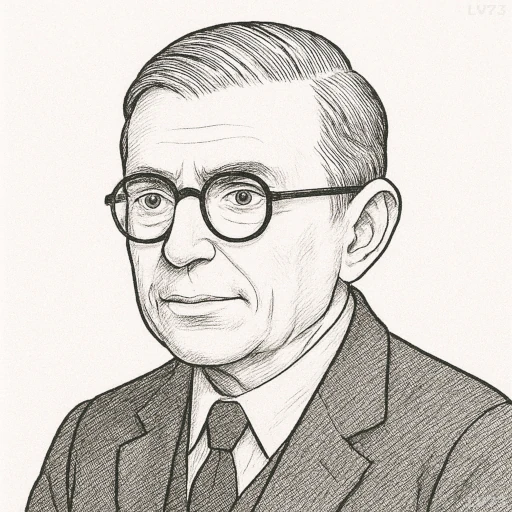“I tell you in truth: all men are Prophets or else God does not exist.”

- June 21, 1905 – April 15, 1980
- Born in France
- Philosopher, novelist, playwright
table of contents
Quote
“I tell you in truth: all men are Prophets or else God does not exist.”
Explanation
In this profound statement, Sartre is emphasizing the radical subjectivity of human existence, a core theme of his existential philosophy. By asserting that “all men are Prophets,” Sartre is suggesting that each individual has the potential to define their own truth, values, and understanding of the world. This idea resonates with his rejection of objective, pre-determined meaning and instead emphasizes that individuals are responsible for creating their own meaning and purpose. The claim that “God does not exist” echoes his famous existential declaration that in the absence of a divine authority, humans must take responsibility for their existence and ethical choices without reliance on an external moral framework.
Sartre’s existentialism challenges the notion of divine revelation as the source of truth, arguing that human beings are the true creators of meaning in their lives. The reference to Prophets suggests that people, through their thoughts and actions, become the interpreters and creators of truth, as there is no God to impose it upon them. In a sense, the role of a Prophet is a metaphor for anyone who seeks to understand or express their experience of the world and offer that as their version of truth, regardless of external validation.
In modern times, this quote can be applied to how individuals shape their belief systems and worldviews in an era of relativism and personal expression. The decline of traditional religious structures has led many to search for meaning in more individualistic or secular ways. Sartre’s words encourage self-determination and reject the passive acceptance of inherited truths. In contemporary life, people are increasingly creating their own narratives and using their personal experiences to guide their understanding of the world, much as a prophet would in an ancient context, without relying on external authority or dogma.
Would you like to share your impressions or related stories about this quote in the comments section?


